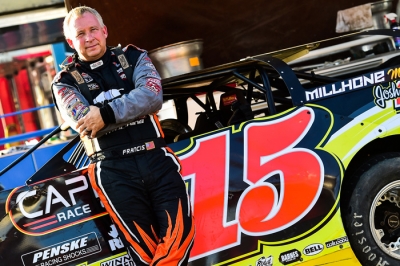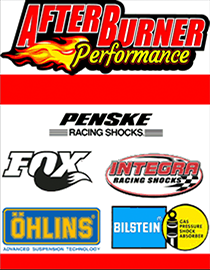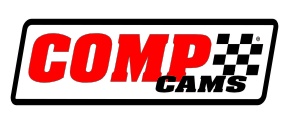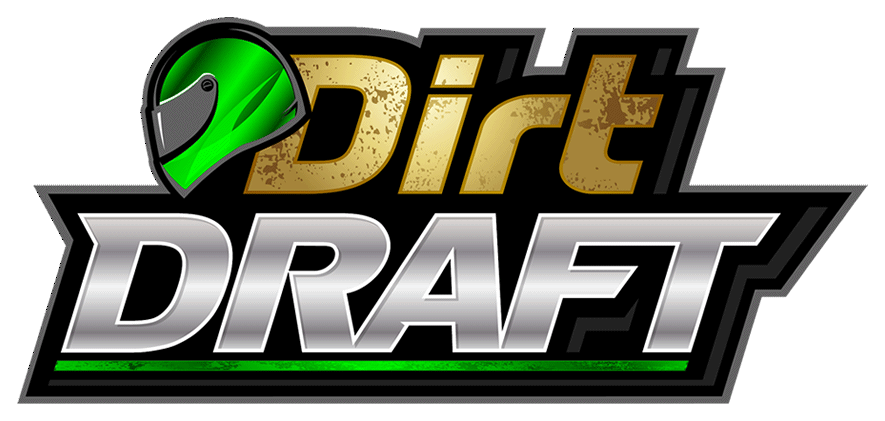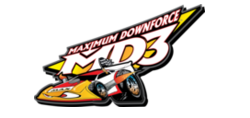
DirtonDirt.com exclusive
Retiring 'Colonel' can't envision a better career
By Kevin Kovac
DirtonDirt.com senior writerTwo months ago, in a pre-race interview over the public address system with DirtonDirt.com’s Ben Shelton during the Sept. 14 Lucas Oil Late Model Knoxville Nationals presented by Casey’s General Store preliminary program at Knoxville (Iowa) Raceway, Steve Francis acknowledged publicly for the first time that he was considering retirement from driving. | Slideshow
But that wasn’t the first time Francis, 50, of Bowling Green, Ky., had thought about hanging up his helmet. After announcing earlier this week that he had decided to end his brilliant, 35-year career as a Dirt Late Model racer and become the technical director for the Lucas Oil Late Model Dirt Series, he admitted that he had been contemplating such a move for the last two seasons as he struggled to keep pace in today’s specialized, dog-eat-dog racing world.
And after Francis suffered a severe concussion and facial injuries when something kicked up from the track smashed into his helmet during a Lucas Oil Series feature July 15, 2016, at Tri-City Speedway in Granite City, Ill., he conceded that he saw the checkered flag on his time behind the wheel come into clearer focus.
“I honestly think in my mind I kind of knew when I got hurt at Granite City that that took a lot out of me and I was probably done then, but I just had to make sure,” Francis said of the incident that knocked him out cold, put him in the hospital for the night and sidelined him from racing for a couple weeks. “That was probably something … it made me look at a lot of stuff a lot differently. I had never missed a race because of being hurt in my whole career. I broke my tailbone and blew two discs out in a heat race at Brownstown (Indiana in 2013) and came back from the hospital and run in the top five in the feature from dead-last that night with my back so sore I can’t walk, but I couldn’t just go right back racing after (the Tri-City injuries).
“That was the first time something like that ever happened to me, and it kind of shook me,” he continued. “I don’t want to say I was scared, but it kind of shook me a little bit. I was 48 years old, and … I don’t know. It just made me think I wanted to do a lot more things in life.”
So, tentatively but steadily, Francis took some steps away from racing with his wife, Amanda, testing how his psyche could handle a separation from the sport that has not only provided his livelihood for more than three decades but been in his blood since he was a child.
“We took two weeks off this year in July and August, didn’t go to Fairbury (for the Illinois track’s Prairie Dirt Classic) or Cedar Lake (for the Wisconsin oval’s UDA Nationals),” Francis recalled of his voluntary mid-season break from competition. “I’ve never done that in my career — and it didn’t bother me to do that. That was kind of like the sign, ‘OK, you’re OK with not being there. That’s not gonna be that big a deal.’ ”
Francis made another non-racing trip after last month’s Dirt Track World Championship at Portsmouth (Ohio) Raceway Park, touring the city of Boston and other places throughout New England with his wife and her family. The prime reason for the excursion, Francis said, was to see a new area of the country and push him and Amanda closer to having visited all 50 states, but, with Francis coming off his third consecutive winless season and a frustrating 11th-place finish in the Lucas Oil Series points standings, the getaway also provided him an opportunity for some personal soul-searching.
“It gave me time to sit and think about things and relax away from the sport,” Francis commented. “There was time to evaluate what I wanted to do. I still wasn’t sure what was gonna happen (in 2018) at that point. I kind of knew I was done then as a car owner — I did it one more time this year (he fielded his own operation for the first time since 2011) because I guess I’m one of those people who wants to do something one more time to be sure that I’m done with it. We had talked to some people (including Blount Motorsports team owner Larry Garner) about running a limited schedule for them next year, so we didn’t know what we were doing.”
Upon returning home, Francis decided to make one more racetrack appearance in 2017. He headed to The Dirt Track at Charlotte in Concord, N.C., for the Textron Off Road World Finals — an event at a speedway where he recorded one of the biggest wins of his career, the $50,000 Colossal 100 in 2008 — and discovered, once and for all, that the fire for racing that had burned in his belly for so many years was truly flickering out.
“I wasn’t really gonna go to Charlotte,” Francis said. “I was gonna take the motorhome down there, park it in the back, enjoy the weekend and really just decide in my mind what I wanted to do (in 2018). And then the Sunday before Charlotte the racer kind of got to me and I said, ‘I think I want to go do this.’
“Then, kind of the whole time I was there, I felt like I was running behind, playing catchup, and I just realized at that point that there was better ways for me to still be involved in the sport.”
By sheer coincidence, while Francis was at Charlotte news broke that Jason Durham, who served as the technical director of the Lucas Oil Series in 2017, had left the position to return to Lance Landers Racing as crew chief for the newly-hired Jonathan Davenport of Blairsville, Ga. The development immediately intrigued Francis, who expressed interest in the job to Lucas Oil Series director Rick Schwallie following the weekend and, after several discussions over the ensuing week, agreed to fill the post.
“When I started talking about (retirement) at Knoxville, Jason had no intentions of leaving the series,” Francis said. “But I just knew if I stopped racing, I wanted to still be involved in some way, whether it be with one of the fuel companies or one of the shock companies or one of the chassis builders or running a limited schedule and being involved with one of them. Then Jason left and this job opened, and it felt right. It was just one of those meant-to-be situations, I think.”
Francis paused, and then continued.
“I’ve been fortunate,” he said. “I’ve raced for, drove for and owned some of the most well-financed teams out there at the time. But it is so hard now to get the people in place. With the professionalism that came to this sport, you need a full-blown race team, and, at 50 years old, I don’t necessarily want to take that financial risk for myself.
“It wasn’t like I just wanted to walk away and say, ‘I’m out of here.’ When I was 30 years old, I said I’d race till I was 45 and then you would probably never see me at another one again. But as I’ve gotten older, I’ve realized how much I enjoy the people, the travel and just being around the sport itself.
“I still love the sport, and that’s kind of why I’ve decided to do this (work as an official). This gave me the opportunity to stay in it.”
Just days after revealing the next chapter in his racing life, Francis sounded totally at peace with his decision.
“I’ve had a lot of questions (for Schwallie), and he’s had a lot of questions for me,” Francis said. “Like, he said, ‘You’re sure you’re done with this (driving)? Because once you do this, you can’t go back to doing that now.’ And I am. It’s not fair for me to be up and under Scott’s (Bloomquist) or Darrell’s (Lanigan) car teching it and then be racing them at some other point somewhere. You can’t do that. So my racing career as a driver is over.”
Three-and-a-half sparkling decades
Francis has always been one of the more approachable, loquacious drivers in the Dirt Late Model pit area. So, not surprisingly, it’s difficult for him to look back on all his time in racing and sum it up with a modicum of words.
“It’s hard to cover a whole 35-year career in a 20-minute interview or whatever,” he quipped with a smile.
Indeed, Francis has done so much in his Hall of Fame career — he was inducted into the National Dirt Late Model Hall of Fame in 2014 — that he’s distinguished himself as one of the division’s all-time greats. He is Dirt Late Model racer through and through, an individual who grew up with dreams of slinging a car around dirt tracks and ended up doing just that as his living for virtually his entire adult life.
“From the time I was in like first and second grade, and the teacher walks in there and tells you, ‘Today we’re gonna draw what you wanna be in your career,’ everybody else was drawing firemen, doctors, policemen, and I’m drawing race cars at that point,” Francis said. “So to be able to do it, the whole spectrum of it, for so many years … I know how lucky I got to have the career I had. That was almost like a dream-come-true type thing, you know what I mean?
“As a kid I was at the World 100 (at Eldora Speedway in Rossburg, Ohio) the year Charlie Hughes (of Dalton, Ga.) won it (1976). I’m like 8, 9 years old, and I’m like, ‘Man! This is awesome!’ To me, that was bigger than winning the Daytona 500 at that time.
“I really never gave that asphalt and NASCAR thing very much thought. I wanted to be a dirt racer. That was my dream, and I got lucky to come up at the perfect time to make that happen.
“The older part of that group that was racing when I was starting was like Charlie Swartz and Larry Moore and Freddy Smith and Mike Duvall, and then there was Jeff Purvis for a time,” he added. “It was kind of like me and Darrell (Lanigan) and Scott (Bloomquist) and Don (O’Neal) — a bunch of us who came up around that time — who got to reap a lot of their benefits, get the rewards for what a lot of those guys did. I couldn’t think of a better time to come through the dirt racing world than when I did.”
Francis made his Dirt Late Model debut in 1982 as a fresh-faced 15-year-old in family-owned equipment and won his first feature two years later. He took off from there, using his tireless work ethic and hard-nosed style to carve out a long, successful career that saw him tally nearly 300 victories, claim five series championships and become well known across the country as the Kentucky Colonel.
The journey wasn’t easy. He eventually enjoyed campaigning some of the division’s strongest, most well-financed equipment, but he paid his dues to reach the pinnacle of Dirt Late Model racing.
“I’ve been one of the brokest racers,” Francis commented. “A lot of people don’t know that there were times when I was down to $300, $400, $500 in my bank account when I was trying to get going and trying to figure out how I was gonna get to the next race. I got fortunate enough to win a few of those races and keep propelling myself forward.”
Francis credited his development as a driver to the series he followed for the majority of his career, from the All-Star Circuit of Champions and original incarnation of the WoO in the late ‘80s and early ‘90s to the STARS circuit in the mid- to late-‘90s, Hav-A-Tampa/UDTRA (1999-2003), the new WoO (2004-10) and Lucas Oil (2011-17). Advancing from more regional to, ultimately, national series provided him stepping stones to steadily learn his trade.
“When I started, you had the All-Star Circuit of Champions, which was basically about a five-hour radius from Columbus, Ohio,” Francis said. “That led into the STARS deal, which, with the exception of going to Florida early in the year, my longest trip from Ashland, Ky., was probably six, seven, eight hours. That STARS deal was a great thing. I don’t know if I would necessarily call that completely regional, but it gave me enough different opportunities. I learned how to race on the road then.”
Chasing a series schedule was effectively Francis’s focus for the last quarter-century. He felt that was his best option to put food on his table — and judging by his longevity as a full-time driver, he made the right call.
“I’ve been a points racer basically 95 percent of my career,” Francis said. “I figured out that was the best way for me to make a living, because when you get that (points-fund) check in December or whatever, that means something. Yeah, I know I drove by a $10,000 (to-win show) at X-racetrack to drive eight hours to go run for $10,000 at Magnolia, Miss., or something, but I got tow money and I also got that check at the end of the year.”
Francis was one of the division’s best points accumulators, rarely finishing outside the top five in the final standings of his chosen series. He won three consecutive STARS titles (1996-98), the 1999 Big Johnson Late Model National Championship crown (the series featured 12 of the division’s biggest events) and the 2007 WoO championship. He also came excruciatingly close to several other titles with runner-up finishes in the ASCoC standings in 1988; the WoO in ’89; STARS in ’92; Hav-A-Tampa in 2000 (by two points to Bloomquist) and ’01 (a single point to Rick Eckert of York, Pa.); WoO in ’04 (to Bloomquist by 13 points), ’05 (lost tiebreaker to Billy Moyer of Batesville, Ark.) and ’09 (to Josh Richards of Shinnston, W.Va., by 14 points); and Lucas Oil in ’13 (to Jimmy Owens of Newport, Tenn., by 50 points).
Francis knew how to win races, though, as well. In addition to the Colossal 100, his list of major triumphs includes the World 100 (1999), Dirt Track World Championship (’99 at West Virginia Motor Speedway), National 100 (2010), Topless 100 (’12) and Knoxville Nationals (’12). He has 28 WoO wins (eighth all-time), 25 STARS victories (seventh), 16 Hav-A-Tampa/UDTRA triumphs (eighth) and 14 Lucas Oil checkereds (ninth).
Ask Francis to itemize the wins he considers most memorable and he’ll offer up three.
“Leading all 100 laps at Batesville (the 2012 Topless 100) was big because I had never really had a lot of success there,” Francis said. “And naturally, you have to say winning the World 100. Winning the World 100 and having my picture taken with me and my brother (crew chief Chris Francis who died suddenly of a heart attack in 2001) and the World 100 trophies, that had a different, special meaning to me. The Eldora weekend was one with a family team, family operation, me and my brother, and that was just, like, a great year. We won the Big Johnson thing that year, we won $70,000-some at Kentucky Lake that fall, we won the Dirt Track (World Championship), we won the World 100. That whole year was just, like, we really couldn’t do anything wrong.
“Probably my single best memory still has to be the whole Knoxville Nationals weekend when I won (in ’12). We run third, we run second, we won (in the three races) … that weekend was just kind of the perfect weekend, all the stars lined up, everything happened. I was driving for Barry Wright (the legendary chassis builder’s house car), and we’re standing there talking and I said, ‘Barry, we can win this race.’ He was like, ‘Well, I don’t know. I think we need to put this other shock and spring package in there.’ I said, ‘OK, let’s put it in and hot lap.’ We go out there and hot lap and we’re off, so I’m like, ‘Let’s just put our standard package back in. I honestly think, Barry, we’re gonna fade here at the beginning, but when this thing slows down and gets back into the middle of the racetrack, this car is just unreal right there. It’ll probably be somewhere around lap 70, 75, before we can get back to the lead.’ Well, I think I took the lead back on like lap 71.
“I’ve always had confidence in my ability, but I’ve never been a guy that had to confidence to say, ‘I think I can get back to the lead at this point in the race,’” he added. “But I felt that way that night. That was just one of them weekends right there.”
Francis’s best season financially was in 2007 when his $100,000 WoO title pushed his total earnings in the neighborhood of a half-million dollars. His second-best year, 1999, fell just a bit short of that mark, but the cash also went further back then.
“In ’99, that was well over $450,000,” Francis said. “That’s a ton of money right now, but to win that kind of money in ’99 — and I had led the ($100,000-to-win Dream 70-some laps when I had a flat tire that year, too — was a big deal. The total race race car, motor and everything was $30,000 then for a top-end car. You can’t buy the car or the motor individually for that now if you bought the best of everything.”
For Francis, the relationships he’s had during his career are especially meaningful to him.
“I know how lucky I was with the people I got to be involved with,” he bottom-lined.
Francis begins with chassis builders, listing the men he’s been associated with.
“I started with C.J. Rayburn,” Francis said of the legendary racer. “I was a kid 12, 13, 14 years old, running around up there helping Charlie Swartz, and when I decided I wanted to race C.J. helped me get my first race car. If if wasn’t for C.J., I don’t know if I would be here right now.
“I was with C.J. a long time, and then for 16 years I was with Mark Richards and Rocket Chassis. Mark’s kind of been like an older brother to me from the time I was like 25 years old. He taught me a tremendous amount about the racing business, and I think him and I taught each other and learned a whole lot about racing together. We experienced a lot of the ups and downs, a lot of good times and bad. Then I went to Barry Wright, I ran Tader’s (Masters) cars (MasterSbilt), and now I’ve been with Marshall Green and Shane Clanton (of Capital Race Cars).
“I’m proud that I can call any one of those chassis builders right now and talk to them like they’re my great friends — and I value them all as great friends. Barry Wright, he’s still one of my really, really good friends, and somebody who I talk to about a lot of other stuff other than race cars. Marshall Green, him and I talk about a ton of other things other than race cars — life, kids, our wives.”
While Francis spent much of his career as an owner-operator, he also raced on a regular basis for some top-notch car owners.
“I drove for Marion Martin back when he had the 44 Stinger Ford car, and Dale Beitler, Larry Moring, Mark Richards, Barry Wright, Clint Bowyer, Tim Logan,” Francis said. “That’s a pretty good list of car owners, I don’t care who you are.
“Me and my brother started together in ’83 as a family deal with my parents. I drove for Marion Martin some in ’92, ’93, but I also had my own race car and split it up some. Then I went back to my own deal all the way through … even when I was driving for Moring (in the early 2000s), I still drove my stuff some.
“Larry Moring, he taught me a lot about business. When I got together with him I had just come off that great ’99 season, I just went through a divorce, I had had a daughter then, and he taught me about life and how to be a little bit of a businessman and inject more of a business attitude into racing. Then I drove for Mark Richards (the Rocket house car in 2002-03 before returning to his own equipment), and then when I drove for Dale Beitler (2008-09), he taught me a lot of stuff business-wise, too.”
Francis has collaborated with some talented, well-known crew chiefs as well.
“I had my brother for all those years who, if he was still here, he’d probably be rated as the best in the business, in my opinion,” Francis said of his sibling, who died in August 2001. “He loved the computer stuff that’s big now, and we were ahead of the curve because of that back then. We had a shock dyno in the late ‘90s. He would’ve taken to all this technology now more than I did. I was more of a hands-on type, where he was more of a computer-type, understood that and how to apply that part of it to racing.
“After (Chris) passed, Ronnie Stuckey stepped up and helped me finish out the rest of that year. I kind of went from my brother to Ronnie Stuckey to Mark Richards and Chad Haney — he worked for Mark Richards then — and then I went back to my own deal and had Lee and Tim Logan working with me. Then I fell right in with Robby Allen with the Dale Beitler deal.
“That list of people that I’ve worked with is unbelievable from top to bottom throughout my career.”
Francis conceded that the last few years have been frustrating — his last Lucas Oil victory came on Feb. 8, 2014, at Golden Isles Speedway near Brunswick, Ga., and his last triumph on American soil was an NDRL score on April 10, 2014, at Pittsburgh’s Pennsylvania Motor Speedway in Imperial, Pa. — but he credits his wife and family members for sticking behind him and pushing him through the tough stretch. He also knows “there are people I’m forgetting to thank who helped me over the years,” but he certainly appreciates all the support he’s received.
“If there is one regret I got (about ending his career), it’s that I didn’t necessarily announce, ‘Well, OK, this is my last race. I’m retiring. I’m done after this,’ ” Francis related. “A lot of the people who have been with me and known me for 30 years and helped me on and off for 20 or 30 years, they didn’t necessarily get to come to the last hurrah, so to speak.”
Nevertheless, Francis has no qualms with how his years as a race car driver turned out.
“Yeah, you can sit here and say, ‘Dang, I wish I would’ve won this race or that race,’ ” Francis said. “Probably the one race that still bothers me that I never won was the North-South (100 at Florence Speedway in Union, Ky.) — that’s the one I really wanted to win but never got (second place in 2003 was his best finish in 22 career feature starts). But I had a 35-year career that I’m proud of. I won Charlotte, the Colossal. I got to win the World 100, the Dirt Track World Championship, the Topless, Knoxville, three STARS championships, a WoO championship, a Big Johnson championship. I can take that resume, walk away from this sport and be tickled to death with it.
“If I could’ve mapped my life out when I was 10 or 12 years old, in second, third, fourth grade, I don’t know if could’ve mapped it out much better.”



